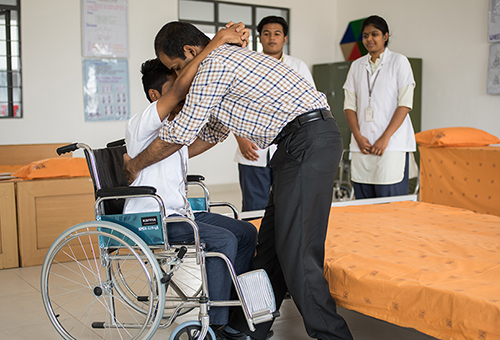In this specialty, the student will acquire the experience of working with a broad range of conditions that fall under two distinct headings; acquired brain injury and progressive neurological conditions such as stroke, Parkinson’s disease, dementia etc.
The academic and clinical learning consist of supporting and facilitating an individual to be as independent as possible in their daily life. The programme focusing on improving reduced cognitive functions such as planning or memory, whereas for others it may be more focused on removing physical barriers to independence through well designed housing, assistive technology or equipment.
The PGs learn and practice various evaluation measure and assessments, both standardised and non- standardised, to assess how the physical, cognitive, and the behavioural impairments primarily affect the different activities of daily living. As an occupational therapist they will also learn productive activity analysis of every task which is used to guide the entire course of rehabilitation.

|
First year |
Second Year |
|---|---|
| Research methodology | Clinical specialty Paper - I |
| Education Technology and Management in Occupational Therapy Practice | Clinical specialty Paper – II |
| General Paper (Occupational Therapy) | Dissertation |